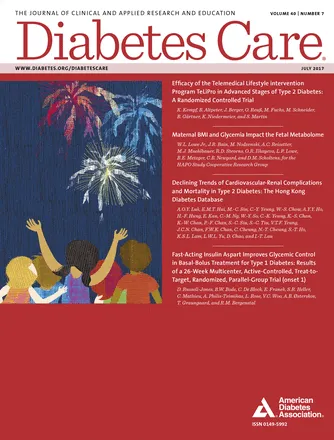In the traditional definition that has been done on type 1 diabetes, it is usually indicated that these types of people cannot produce insulin, unlike type 2 diabetes where such capacity is progressively reduced.
These days we have received a study that ensures that almost half of the people with type 1 diabetes continue to produce some insulin ten years after being diagnosed with the disease.A statement that staggers what we know to date.
The new findings challenge previous assumptions that assured that people with type 1 diabetes totally lose the ability to produce insulin, hormone that helps transform food sugar into energy for body cells and key to survive.
Researchers at the University of Uppsala in Sweden, led by researcher Daniel Thick, reached these conclusions after studying more than 100 patients with type 1 diabetes.
The researchers found that people with the capacity to produce insulin despite their type 1 diabetes, had higher levels of a protein called interleucin-35.This protein seems to play an important role in the immune system and therefore in its direct relationship with type 1 diabetes.
The previous investigations had shown that both the newly diagnosed people with type 1 diabetes and those who have had the disease for some time had lower levels of interleukine-35 compared to people without diabetes.
UPPSALA researchers have launched a new study to see if they can be able to increase insulin production in people with type 1 diabetes that are still producing insulin in low doses, since there would perhaps have perhaps a solution for peoplewith type 1 diabetes.
The study is published this week at Diabetes Care Link
Diabetes Tipo 1 desde 1.998 | FreeStyle Libre 3 | Ypsomed mylife YpsoPump + CamAPS FX | Sin complicaciones. Miembro del equipo de moderación del foro.
Autor de Vivir con Diabetes: El poder de la comunidad online, parte de los ingresos se destinan a financiar el foro de diabetes y mantener la comunidad online activa.
Will that be what calls honey moon?
Lada enero 2015.
Uso Toujeo y Novorapid.
This link seemed useful after being looking if my pancreas really stopped producing insulin
I am afraid of overlapping the one I am inject
Link
I also caught the attention of people who did not go down from 200 even using insulin and that is what I felt that it happened to me between February and March with Euglucon that I used many years and diamicron who did not lower my sugar
Now I see that it could be that the organism needed to adapt to another remedy as it happens when changing to threeiba
I still do not convince myself and I am in an adaptation stage to external insulins
Diabetes 2, pero insulinorequiriente, con resistencia a la insulina y pancreas agotado.
HbA1c: dic '16: 12,8; mar '17: 10,9
Fallece mi madre oct '17
Ida a Paraguay feb '18
HbA1c: oct '18: 8,7; ene '19: 6,5; abr '19: 6,2 abr '19: 6,5; jun '19: 7,5; set '19: ???
Detemir 26 7:30 y 20 19:30
Aspartica 4 antes desay y mer y 5 antes alm y cena.
200 a 250gr de HC diarios, 80gr Prot y 80gr Grasa. Segun actividad.
71 años 88kg 1,72.
@Mario69, lla diabetes is different in each person and, the amount of insulin that the pancreas can secrete, also.
In type1, the attack on pancreas is usually very fast, and slower in type2.
Anyway, when there is not enough insulin, the necessary must be considered.
Hija de 35 años , diabética desde los 5. Glico: normalmente de 6 , pero 6,7 la última ( 6,2 marcaba el Free)
Fiasp: 4- 4- 3 Toujeo: 20




